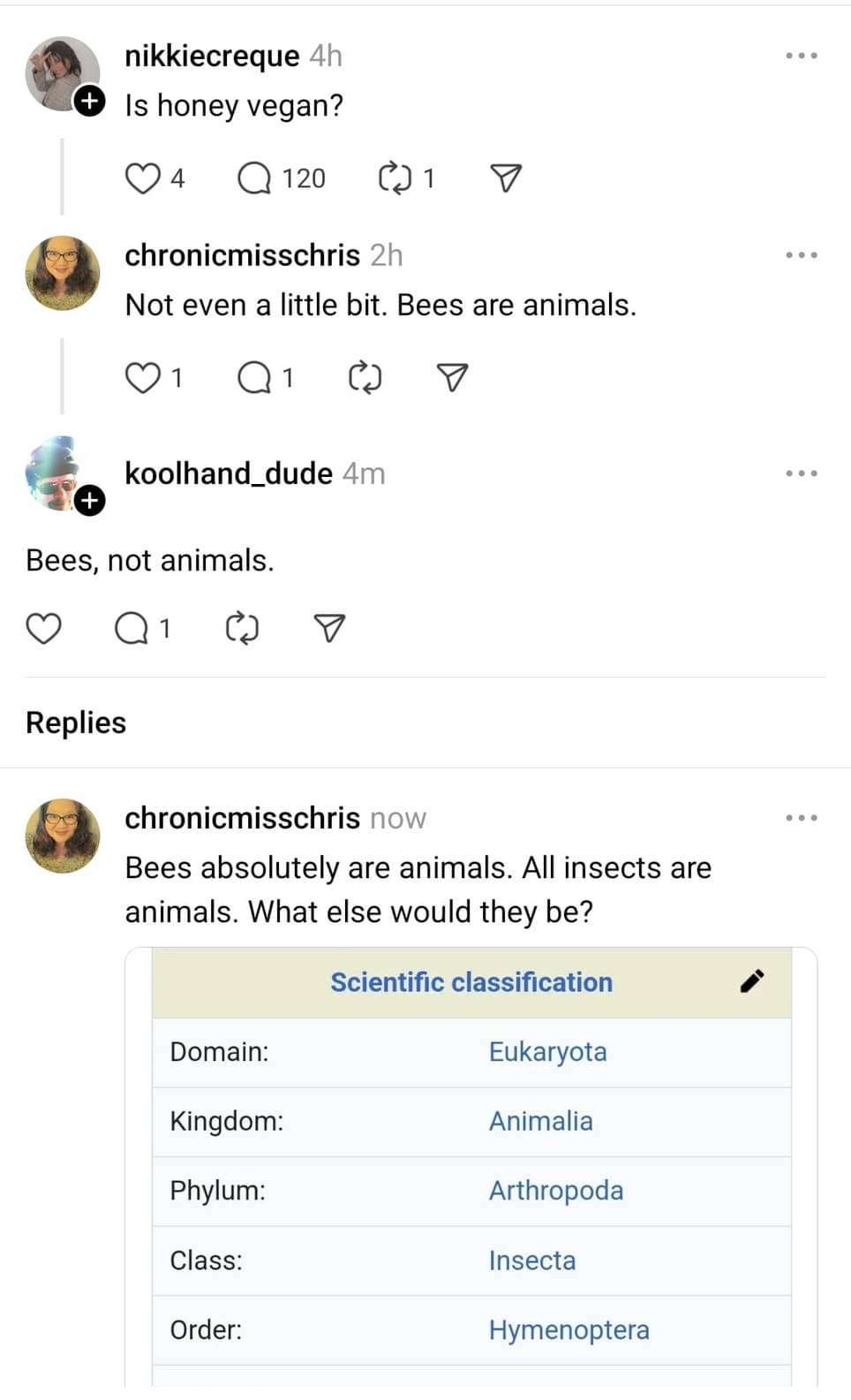this post was submitted on 19 Oct 2024
703 points (98.0% liked)
Science Memes
10752 readers
3606 users here now
Welcome to c/science_memes @ Mander.xyz!
A place for majestic STEMLORD peacocking, as well as memes about the realities of working in a lab.

Rules
- Don't throw mud. Behave like an intellectual and remember the human.
- Keep it rooted (on topic).
- No spam.
- Infographics welcome, get schooled.
Research Committee
Other Mander Communities
Science and Research
Biology and Life Sciences
- [email protected]
- [email protected]
- [email protected]
- [email protected]
- [email protected]
- [email protected]
- [email protected]
- [email protected]
- [email protected]
- [email protected]
- [email protected]
- [email protected]
- [email protected]
- [email protected]
- [email protected]
- [email protected]
- [email protected]
- [email protected]
- [email protected]
- [email protected]
- [email protected]
- [email protected]
- [email protected]
- [email protected]
- !reptiles and [email protected]
Physical Sciences
- [email protected]
- [email protected]
- [email protected]
- [email protected]
- [email protected]
- [email protected]
- [email protected]
- [email protected]
- [email protected]
Humanities and Social Sciences
Practical and Applied Sciences
- !exercise-and [email protected]
- [email protected]
- !self [email protected]
- [email protected]
- [email protected]
- [email protected]
Memes
Miscellaneous
founded 2 years ago
MODERATORS
you are viewing a single comment's thread
view the rest of the comments
view the rest of the comments

Kinda tongue-in-cheek questions, but: Honey isn't an animal body part, it isn't produced by animal bodies, so if it is an animal product because bees process it, is wheat flour (for example) an animal product because humans process it? How about hand-kneaded bread? Does that make fruit an animal product because the bees pollinated the flowers while collecting the nectar?
I've always found it interesting that using animals is a bad thing, but using plants in similar ways is fine. I guess there has to be a line somewhere, otherwise such a person would simply starve to death.
Animals aren't just used, they are tortured on a industrial scale. That's mainly why vegans oppose animal products.
Are bees tortured to get honey?
yea of course, never heard of the bee grinder?
Well bees are definitely objectified and seen as industrialized honey producing machines. They're starved of their own resources and are given mostly sugar water in return. Bee keepers are not concerned with their well-being other than for production yields. It is a form of factory farming. Isn't this reason enough?
As a local beekeeper, I take offense to your sentiment.
Maybe time to think about life choices then?
Quite happy with my life, thank you. And the bees.
your offense has been duly noted and taped to the refrigerator for all to see
We’ve been keeping them improperly in the winter since the mid 20th century, leading to unnecessary bee mortality within hives. Whether that’s torture or not is up to you, but it’s definitely unnecessary harm.
This is suggesting that we should be using hive covers. What exactly changed in the mid 20th century?
We stopped using hive covers because they’re more expensive than the increased mortality. They naturally nest in tree hollows in winter, whose thicker walls (and living material) allow the hive to maintain a higher internal temperature than uncovered hives (or covered hives).
They're certainly exposed to a very different living situation than would be typical for them in most cases, to their detriment. For example, bees that make their combs in frames lose substantial heat from their hives, which usually helps protect against disease and even predation. They're also often given a sugar water substitute to eat when their honey is drained off for human consumption, which is nowhere near as nutritious. They're also moved around on the bee keeper's schedule, which may be a substantial stressor compared with a hive that stays in one place. Never mind that they may be exposed to climates that substantially differ from where that particular variety of honey be evolved.
Given issues like colony collapse disorder, it's pretty clear that many forms of bee keeping aren't really great for bees. Does that constitute torture? That's hard to tell, but it certainly does put pressures on them in multiple aspects of their lives and the lives of their hives as a whole that they wouldn't be dealing with otherwise, and which probably aren't pleasant.
Would you consider it torture, or at least cruel, to forcibly relocate the population of a city to an area that's freezing cold, force them to live in poorly insulated homes, make them eat food that isn't healthy for them, and steal the product of their labor in exchange for their efforts?